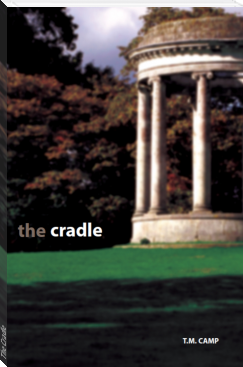Cliges: A Romance, active 12th century de Troyes Chrétien [warren buffett book recommendations txt] 📗

Book online «Cliges: A Romance, active 12th century de Troyes Chrétien [warren buffett book recommendations txt] 📗». Author active 12th century de Troyes Chrétien
When all had had their meat and drink, then has the king no longer kept silence. "Friend," quoth he, "I would know if it is from pride that you forbore and disdained to come to my court as soon as you entered this land, and why you thus withdraw yourself from folk and change your arms. Now impart to me your name, and say of what race you are born." Cliges replies: "Never shall it be concealed." He has told and related to the king whatsoever he demands from him; and when the king has learned his name then he embraces him; then he rejoices over him; there is none who does not greet him in clue form. And my Lord Gawain knew him, who, above all, embraces and greets him. All greet him and fall on his neck; and all those who speak of him say that he is right fair and valiant. The king loves him and honours him more than any of all his nephews.
Cliges stays with the king until the beginning of summer; by that time he has been over all Britain and over France and over Normandy, and has wrought many a knightly deed, so that he has well proved himself. But the love with which he is wounded grows neither lighter nor easier. The wish of his heart keeps him ever constant to one thought: he remembers Fenice who far from him is torturing her heart. A longing seizes him to return home; for too long has he abstained from seeing the lady more yearned for than any lady, that ever heard of man has yearned for. And he will not abstain longer from her. He prepares for the journey to Greece; he has taken leave and returns. Much, I ween, did it grieve my lord Gawain and the king when they can no longer keep him. But he longs to reach her whom he loves and desires; and he hastens o'er sea and land; and the way seems very long to him, so eagerly does he yearn to see her who takes away and purloins his heart from him. But she yields him a fair return; and well does she pay and compensate him for the toll she has extorted from him; for she in her turn gives her own heart in payment to him, whom she loves no less. But he is not a whit certain about it; never had he pledge or promise in the matter; and he grieves cruelly. And she also laments; for her love of him is tormenting and killing her; and nothing can give pleasure or joy in her eyes since that hour when she ceased to see him. She does not even know if he is alive, whereof great sorrow strikes her to the heart. But Cliges gets nearer each day, and in his journey he has had good luck; for he has had a fair wind and calm weather, and has anchored with joy and delight before Constantinople. The news reached the city; it was welcome to the emperor and a hundred times more welcome to the empress. If anyone doubt this it will be to his own sorrow. Cliges and his company have repaired to Greece, straight to the port of Constantinople. All the most powerful and noble come to the port to meet him. And when the emperor who had advanced in front of all meets him, and the empress who walks by his side, the emperor, before all, runs to fall on his neck and to greet him. And when Fenice greets him, the one changes colour because of the other; and the marvel is how when they come close to each other they keep from embracing and kissing each other with such kisses as please Love. But folly would it have been and madness. The folk run up in all directions and delight to see him. They all lead him through the midst of the town, some on foot and some on horseback, as far as the imperial palace. Of the joy that there was made will never word here be told, nor of the honour, nor of the homage; but each has striven to do whatever he thinks and believes will please Cliges and be welcome to him. And his uncle yields to him all that he has save the crown. He is right willing that Cliges take at his pleasure whatsoever he shall wish to obtain from him, be it land or treasure; but Cliges makes no account of silver or of gold, since he dare not disclose his thought to her for whom he loses his rest; and yet he has leisure and opportunity for telling her if only he were not afraid of being refused; for every day he can see her and sit alone by her side without anyone gainsaying or forbidding; for nobody imagines or thinks evil of it.
A space of time after he had returned, one day he came unattended into the room of her who was not forsooth his enemy, and be well assured that the door was not shut against the meeting. He was close by her side and all the rest had gone away, so that no one was sitting near them who could hear their words. Fenice first of all questioned him about Britain. She asks him concerning the disposition and courtesy of my lord Gawain, and at last she ventures to speak of what she dreaded. She asked him if he loved dame or maiden in that land. To this Cliges was not unwilling or slow to reply. Quickly was he able to explain all to her, as soon as she challenged him on the point. "Lady," quoth he, "I was in love while yonder; but I loved none who was of yonder land. In Britain my body was without a heart like bark without timber. When I left Germany, I knew not what became of my heart, save that it went away hither after you. Here was my heart and there my body. I was not absent from Greece, for my heart had gone thither, and to reclaim it have I come back here; but it neither comes nor returns to me, and I cannot bring it back to me, and yet I seek it not and cannot do so. And how have you fared since you have come into this land? What joy have you had here? Do the people, does the land please you? I ought to ask you nothing further save this—whether the land please you." "Formerly it pleased me not; but now there dawns for me a joy and a pleasure that I would not lose, be assured, for Pavia or for Placentia; for I cannot dissever my heart from it, nor shall I ever use force to do so. In me is there nought save the bark, for without my heart I live and have my being. Never was I in Britain, and yet my heart has made I know not what contract in Britain without me." "Lady, when was your heart there? Tell me when it went, at what time and at what season, if it is a matter that you can reasonably tell me or another. Was it there when I was there?" "Yes, but you knew it not. It was there as long as you were there and departed with you." "God! and I neither knew nor saw it there. God! why did I know it not? If I had known it, certainly, lady, I would have borne it good company." "Much would you have comforted me and well would it have become you to do so, for I would have been very gracious to your heart, if it had pleased it to come there where it might have known me to be." "Of a surety, lady, it came to you." "To me? Then it came not into exile, for mine also went to you." "Lady, then are both our hearts here with us as you say; for mine is wholly yours." "Friend, and you on your side have mine, and so we are well matched. And know well that, so may God guard me, never had your uncle share in me, for neither did it please me nor was it permitted to him. Never yet did he know me as Adam knew his wife. Wrongly am I called dame; but I know well that he who calls me dame knows not that I am a maid. Even your uncle knows it not, for he has drunk of the sleeping draught and thinks he is awake when he sleeps, and he deems that he has his joy of me, just as he fain would have it, and just as though I were lying between his arms; but well have I shut him out. Yours is my heart, yours is my body, nor indeed will any one by my example learn to act vilely; for when my heart set itself on you, it gave and promised you my body, so that nobody else shall have a share in it. Love for you so wounded me that never did I think to recover any more than the sea can dry up. If I love you and you love me, never shall you be called Tristram, and never shall I be Iseult, for then the love would not be honourable. But I make you a vow that never shall you have other solace of me than you now have, if you cannot bethink yourself how I may be stolen from your uncle and from his bed, so that he may never find me again, or be able to blame either you or me or have anything he may lay hold of herein. To-night must you bend your attention to the matter and to-morrow you will be able to tell me the best device that you will have thought of, and I also will ponder on the matter. To-morrow, when I shall have risen, come early to speak to me, and each will say his thought, and we will carry out that which we shall consider best."
When Cliges heard her wish, he has granted her all, and says that it shall be right well done. He leaves her blithe, and blithe he goes away, and each lies awake in bed all night and they think with great delight over what seems best to them. The morrow they come again together, as soon as they were risen, and they took counsel in private, as there was need for them to do. First Cliges says and recounts what he had thought of in the night. "Lady," quoth he, "I think and believe that we could not do better than go away to Britain: thither have I devised to take you away. Now take heed that the matter fall not through on your side. For never was Helen received at Troy with such great joy, when Paris had brought her thither, that there will not be yet greater joy felt throughout the whole land of the king, my uncle, anent you and me. And if this please you not well, tell me your thought; for I am ready, whatever come of it, to cleave to your thought." She replies: "And I shall speak it. Never will I go with you thus, for then, when we had gone away, we should be spoken of throughout the world as the blonde Iseult and Tristram are spoken of; but here and there all women and men would blame our happiness. No





Comments (0)